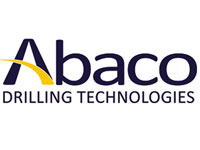AADE Houston FMG Meeting
When: Feb 17, 2022 @ 1:30 PM
DATE: Thursday, Feb 17, 2022 - 1:30 PM - 4:00 PM
LOCATION: Embassy Suites - Houston Energy Corridor, 11730 Katy Freeway, Houston, TX 77079. Kirkwood Exit next door to TechnipFMC.
COST: Member: Free to attend / Non-member: $15
Non-members have the option to join as a member or renew your membership before registering, then the meeting cost will be free as well as all subsequent DTC meetings for 2022. If you register for virtual attendance, the meeting link will be sent within 24 hours of the meeting date.
Program Topic: “New Fluids”
SPEAKERS
1. Dr. Astri JS Kvassnes - Chief Technology Officer - ReStone AS, Stavanger, Norway
Presenting – “A novel cement additive material that makes ordinary cement blends self-healing and more resistant to CO2 and H2S”
This presentation will address the cementing of petroleum wells in both harsh- and ordinary environments for well-cementing. Major innovative developments in cementing have made drilling- and well operations safer for the petroleum industry. However, micro-cracks, micro-annuli and poor bond-logs are still a concern, and harsh chemicals accentuate these problems. Once these pathways for fluids are open, they stay open or widen to cause leaks unless we engage major costly repairs or many years of compression of the structures. Kvassnes will present data on a novel cement additive that is based on environmentally safe mineral products. The addition of these mineralogical materials into ordinary cement blends cause the matrix to self-heal when any water is present in the set cement. This process is only accentuated if the cement is exposed to harsh chemicals like CO2 and H2S, leading to permeabilities in the 10s of nDs. This field-tested and proprietary innovation has the potential to ease the worry of immediate and future damage in operations that are performed in areas with known sour wells, vibrations, earthquakes, and for just knowing that the future integrity of the well is improved. The cost saving potential is significant as there is no need to change ordinary cementing infrastructures or techniques.
Dr Astri Kvassnes co-founded ReStone in 2016 after a 20-year career in Geology and Geochemistry. She holds a PhD from the Massachusetts Institute of Technology in Marine Geology. She has co-authored more than 20 scientific papers and holds 4 patents. She was named Female entrepreneur of the year by the Fredrikke Qvam association in 2020. After serving as the CEO of ReStone for 5 years, she is now the Research Manager and CTO of the company and is developing novel products for their portfolio.
2. Ashok Santra - Aramco Services Company: Aramco Research Center - Houston, USA
Presenting – “Field Deployment of Nanomaterial Based Shale Inhibitors”
Shale inhibition solutions that are commonly used in water-based fluids employ chemical systems that are often not universally applicable. For example, the use of KCl as a clay stabilizer can increase dispersion in some shales. Shales which are rich in kaolinite, can lose strength when exposed to KCl through cation exchange with potassium. NanoSilica Based Shale Inhibitor (NSBSI) has been developed to mitigate the difficulties in clay stabilization in particularly challenging formations. This is a novel functionalized NanoSilica shale inhibitor for water-based drilling fluids.. It can be used as an alternative to polyamine-based shale inhibitors and silicate-based shale inhibitors. Field trials were in three wells. Further addressing field requirements for shale inhibition in water-based muds, we have recently developed a second shale-inhibiting product which is functionalized nanoplatelets composed of amine functionalities anchored on the nanometer-thick magnesium silicates (LMSNH2). Shale stabilization characteristics of LMS-NH2 were tested and compared with other commercial shale inhibitors. A summary of all our findings will be presented in this talk
Dr. Santra is a Materials Chemist, currently working for Aramco Services as Focal Point Leader for Drilling Fluids R&D group at their Houston facility. He has graduated from IIT, IISc and worked as a researcher at Cambridge (UK), Cardiff (UK) and Texas A&M Universities. He has 25+ years of research experiences in new product/processes development for Oilwell Drilling, Cementing and Production Enhancement. Ashok has coauthored 80+ scientific publications and 80+ patents. He has served as a SPE local chapter Chairperson, currently associate editor of SPE Drilling & Completion Journal. In the past he has worked for Halliburton, Weatherford and Lubrizol at various capacities
3. Panel Discussion
-
Panelists:
-
Paul Scott, ConocoPhillips
-
Shannon Stocks, Chevron
-
Sabine Zeilinger, ExxonMobil
Topic – “Operators' Perspectives on New Fluids for Drilling”
What makes a good drilling fluid? Must it be cost effective, inhibitive, low frictional pressures or have a small environmental footprint? The answer may just be “all of the above”, and priority depends on the area of operations, and specific needs for the well. In this discussion, the panelists will explore the current drilling fluid development needs and share their thoughts on fluid innovation.
Paul Scott is a Drilling & Completion Fluids SME for ConocoPhillips in Global Wells. He has 42 years of worldwide experience with all types of fluids and issues. Paul graduated from Texas Tech University in 1978 with BS in Mechanical Engineering. Paul joined ConocoPhillips in January 2006 after 7 years Marathon Oil Company. Prior to Marathon, he worked for ARCO Oil and Gas after being with M-I Drilling Fluids (Magcobar) for 19 years in various positions and locations with his final position at M-I being the Manager of Technical Services Engineering. He is active within industry organizations such as SPE, API, and AADE. He has 8 years of rigsite experience on the service company side and 10+ years of direct business unit operational experience for operators with the remaining time being office based global technical support.
Shannon K. Stocks is a Drilling Fluids Specialist supporting well construction operations for Chevron. Over the past 24 years, Shannon has acquired a broad background in Drilling Fluids, Solids Control and Waste Management, with focus on R&D and field applications, and has also worked as a Drilling Engineer for both Chevron and ExxonMobil. Shannon earned her BS and MS in Chemical Engineering from South Dakota School of Mines and Technology and an MBA from LeTourneau University. Shannon currently chairs API SC 13 (Subcommittee on Drilling, Completion and Fracturing Fluids), and is a member of AIChE, SPE and AADE.
Sabine Zeilinger works in the ExxonMobil Wells Technical Organization where she is a Principal of Fluids providing operations support in drilling and completion fluids, solids control and waste management. She worked for Shell E&P from 1998 to 2005 as a research engineer in fluids and joined ExxonMobil in 2005. Sabine holds a Dipl. Ing. from the Mining University Leoben and a Ph.D. from the University of Texas at Austin, both in Petroleum Engineering.
Reservations are required! If you register for virtual attendance, the Zoom meeting link will be emailed to those registered within 48 hours of the meeting date.
Deadline for reservations is Friday, Feb 11.
Search AADE for PDF Files
© 2024 American Association of Drilling Engineers
Follow AADE:
This website uses cookies. By continuing to browse this website without changing your web-browser cookie settings, you are agreeing to our use of cookies. To learn more read our privacy policy.
Ok







